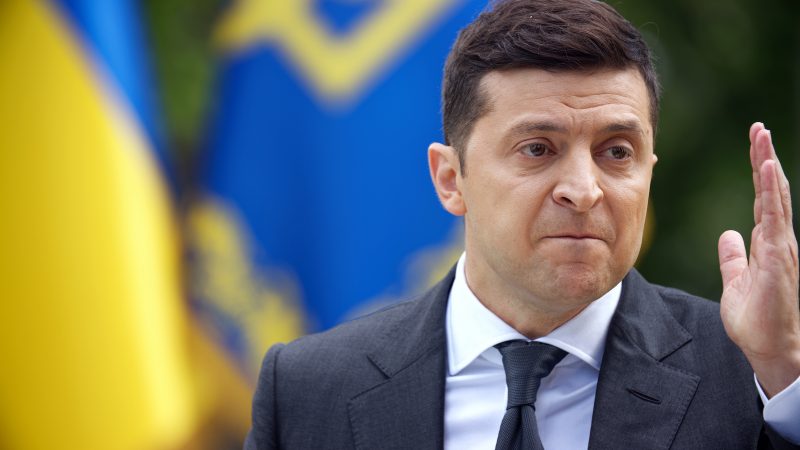
This time last year, I was at Kyiv’s Borispol Airport, scrambling onto the last flight to Istanbul. “I’m bricking it,” the journalist behind me in the queue for the last few tickets said. So was I. Defence officials had just briefed us that the Russian invasion was imminent. There was no logic to it: the Ukrainian Ministry of Defence told us that, with the limited number of troops Vladimir Putin had mobilised, they could certainly blunt the attack. But the signs were unmistakeable. There were probably already Russian special forces inside the city. It was time for our labour movement delegation to leave.
Few of those we left behind could have imagined the horrors that were ahead. Russian troops were told that they would be mopping up a few, hard-line Nazis. Shocked by the scale of the Ukrainians’ resistance, they resorted to totalitarian occupation measures – kidnap, torture, execution, systematic rape and the abduction of children – against entire populations of towns and villages.
One year on, the Labour Party can be proud of its solidarity with Ukraine. Our frontbench supported every sanction and tranche of military aid proposed by the Tories and were often in advance of the government. The few backbenchers who had signed a letter blaming NATO aggression for the war immediately withdrew their names. Labour-affiliated trade unions have kept a steady stream of non-lethal aid flowing to their counterparts on the frontlines.
But, let’s be honest, we need to do more. While our counterparts in Germany have completely overhauled their thinking about security and defence, delivering a massive spending hike for the Bundeswehr and recasting the whole of domestic policy around Russia’s threat, there has been no Labour Zeitenwende.
In part, of course, that’s because we started from a better place. Labour’s commitments to NATO and the nuclear deterrent survived Jeremy Corbyn’s leadership and remain central to Keir Starmer’s approach to this crisis. With the Tories still fantasising about an independent military presence in the Pacific, Labour’s claim to be the most pro-NATO party in Westminster is well grounded.
But those who have led from the front on solidarity with Ukraine have faced a constant barrage of vilification from the far left, Russian-aligned media outlets and the Corbyn-led Stop The War campaign. And though such forces are marginal within the party, they have retained influence in the unions, where the TUC’s commitment to support increased UK defence spending is coming under sustained attack.
I still sense a desire, among the wider Labour family, for the whole Ukraine crisis to go away. So that we can get back to the ‘normal’ issues that drew many of us into politics. And so the bitter divisions between former comrades on the left can be healed. But it’s not going to happen.
There’s no mystery about what underpins such thinking. Our party has a deeply-rooted and legitimate pacifist tradition going back to its foundation. Keir Hardie, Ramsay Macdonald and George Lansbury were all pacifists. Clement Attlee walked through the lobby against the Tory defence budget every year until 1937, two years into his leadership.
After 1991, the party’s foreign policy traditions divided between two versions of what the foreign policy world calls “idealism”. The idealism of Tony Benn, who saw unilateral disarmament as the route to a peaceful world order and the idealism of Tony Blair, who tried to achieve it through expeditionary warfare in the name of liberal values.
Today, conditions have changed so profoundly that neither faction’s assumptions can be sustained. For the first time since the 1930s, we face an overt, violent and existential rejection of any form of rules-based order – not just by Russia but by its moral supporter in Beijing. Disarmament is off the agenda. But so are wars of choice waged alongside an invincible US ally.
Like my grandparents’ generation, we are now in situation where ‘back to normal’ lies on the other side of the defeat and collapse of hostile totalitarian regimes. Has our party’s wider membership and activist base truly understood this? Have we reprioritised our policy offer to reflect it? Have we truly persuaded those who once idealised Corbyn that his position on Ukraine is a disgrace? Not completely.
As the Tories bicker over whether to boost defence spending, I want to see Labour make the strongest commitment possible to the goal of spending 3% of GDP on defence by the end of the decade. Like Attlee’s generation, we need proudly and unequivocally to associate the Labour brand with rearming Britain.




More from LabourList
Nudification apps facilitate digital sexual assault – and they should be banned
Diane Abbott suspended from Labour after defending racism comments
Labour campaign groups join forces to call for reinstatement of MPs